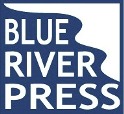Blog
National Indiana Day and the Books about the Great State
Today is National Indiana Day. Each state in the United States has a national day celebrated on the date it became a part of the U.S. Therefore, we celebrate National Indiana Day and the books about the great state.
The state of Indiana has a plethora of fascinating facts about it and many intriguing people who call or have called Indiana their home. Known as the Hoosier state, there are several theories that swirl around the meaning of the name, where it came from, and why the people of Indiana are called Hoosiers. Can you let us know your favorite theory?
A Little History
Did you know… Indiana Fun Facts
- Indiana was admitted as the 19th state of the union on December 11, 1816.
- The oldest state symbol is the state song, On the Banks of the Wabash, Far Away, written by Terre Haute native, Paul Dresser. It became the state song on March 14, 1913.
- The flag contains 19 stars representing the state and the states that were admitted prior to Indiana.
- The tulip tree became the state tree in 1931.
- In 1933, the Indiana General Assembly chose the cardinal as the state bird. You can spot this bright red (male) and brown/red (female) bird easily in Indiana, especially in the winter
- The peony gives off a sweet, refreshing floral scent the peony. It is no wonder it was selected in 1957 as the state flower replacing the colorful zinnia.
- Yes, Indiana has a state poem written by Arthur Franklin Mapes of Kendalville. Indiana, the poem, was adopted by the General Assembly in 1963.
There are many enriching books that revolve around Indiana from sports to murder mysteries that will not only inform you but also entertain you. Here are a few you can find at Blue River Press.
 Indiana Crosswords, 3E by H.W. Kondras
Indiana Crosswords, 3E by H.W. Kondras
If you love puzzles and trivia, you will love this book that challenges your knowledge of the Midwestern mecca of corn and basketball. Read about famous people hailing from the state, the wildlife you will find there, Hoosier sports and of course Indy racing, Indiana crime, and the many Indiana festivals.
Seek & Find Indiana by H.W. Kondras
Learn more about the state and have fun doing it with this puzzle book.
The Indianapolis 500 by Lew Freedman
The first Indy car race was held in 1911 when most people didn’t even own a car. This book runs down the history of the Indy 500.
I Love IU, I Hate Purdue by Joe Drozda
College sports fans will love reading about the rivalry between Indiana and Purdue.
Summer Wind by Randy and Roxanne Mills
Detailed letters written by Indiana soldier, Dick Wolfe to his wife, mother, and friends while in Vietnam in 1967-1968. He wrote from his large base camp and also in quick messages from his tent-covered hole by the light of a single candle. Read the fascinating and heartbreaking story of his time during the war.
A Golden Bond by Elaine Jannetides
Angie, the daughter of Greek immigrants, found herself facing many unwanted challenges in her teen years. She fought hard and worked harder to get her senior class ring only to have it stolen from her. We follow the ring as it travels around the world, and come back to Angie’s many struggles in this coming-of-age tale taking place in the mid-1950’s sleepy but developing city of Indianapolis.
Hoosiers Through and Through by Terry Hutchens
This book features 583 basketball players from the state of Indiana who have played basketball at Indiana University in more than 110 years of competition.
Anthologies – A Collection of Short Murder Mysteries from The Indiana Sisters in Crime
Bedlam at the Brickyard
To see more excellent books and titles on other topics, go to our book shop. If you have any questions, you can contact us here or give us a call at 317-352-8200.
Blue River Press has more than 100 books and e-books in print and is distributed nationally by Cardinal Publishers Group.
Happy Reading ~ Ginger Bock
What College Students Need
 Mind Matters
Mind Matters
An Occasional Column by Anthony D. Fredericks
What College Students Need
 In numerous studies, several factors have been identified that have a significant and permanent impact on how well undergraduate students learn. This body of research has focused on identifying the expectations students bring to the college class and the ways in which professors can respond to those needs while teaching the necessary course content. I like to call these “The Big Four.” Let’s take a look at each one briefly:
In numerous studies, several factors have been identified that have a significant and permanent impact on how well undergraduate students learn. This body of research has focused on identifying the expectations students bring to the college class and the ways in which professors can respond to those needs while teaching the necessary course content. I like to call these “The Big Four.” Let’s take a look at each one briefly:
- Comprehensible Presentations
As professors and practitioners, we are passionate about our subjects. We are steeped in the concepts, philosophies and terminology of our respective professions. But, students are not! Here are a few ideas to help students understand some of the complex concepts we need to present:
- Begin each class with one of the following: “What is one question you have about today’s reading assignment?” “What is one question you have not found the answer to?” “What is one question that excites you right now?”
- Always provide opportunities for students to share and discuss course concepts in small group sessions. Learning occurs best when students have opportunities to talk about the implications of course content as well as their understanding of those concepts. Focused in-class assignments and projects are critical to their understanding.
- Always link new material to previously learned material. New information should always be tied to prior material learned in the course; information learned in previous (prerequisite) courses; and, especially, the “real-life” experiences of students outside the course.
- Practice the following: “This seems to be a challenging or difficult piece of information. How can I help you understand it?” Don’t assume that students will tell you when they don’t understand something. One of the best motivational devices at your disposal is to anticipate their intellectual discomfort and to be pro-active in responding to it.
- A Supportive and Engaging Classroom Environment
One of the most valuable ways we can promote a supportive classroom environment is through the feedback we provide both in and out of class. Students want to see a direct connection between any effort or completed task (such as reading a textbook chapter or completing a midterm exam) and a response from you. Here are some suggestions:
- Make feedback immediate. (“I’m returning the test you took in the last class.”)
- Always frame your feedback in positive language. (“Wow, it looks like we’re really on a ‘roll’ today with quantum theory!”)
- Allow students to revise their incorrect responses. (“I’m not sure that’s a sufficient response. Is there another way we could explain this?”)
- Always make eye-to-eye contact in asking a question as well as when giving feedback. Let each student know that she or he has your complete and total attention. (“Sandy, I see that you’re a little unsure about some of the philosophical influences on the American system of education. What can I do to clarify?”)
- Allow students to control some feedback. (“How do you feel about your effort on the titration experiment?”)
- Always comment on students’ answers and always use part of a student’s answer in your response. (“Let me see if I can rephrase that. What you’re saying is that the League of Nations was doomed from the very beginning – right?”) [Note: This tip is so important that it should get five stars -«««««]
In any verbal engagement with students, don’t just accept a student’s response to a question. Rather, prompt their thinking through one or more of the following:
- Always provide a reaction to a student’s verbal contribution (“I like your interpretation of [the author’s] main thesis.”).
- Always relate a student’s comment back to the text (“Your summary of this article seems to concentrate on the author’s last two points.”).
- Always use a student’s words in framing a response (“You said that you thought that the author was ‘less than honest, less than candid’ in his summary. Please elaborate.”).
- Always turn a student’s response into one or more higher level questions (“Given your position on this issue, how could we use that information to interpret [another author’s] thesis?”)

- Approachability and Respect
Repeatedly, in study after study, college students report that the “availability,” “openness,” and “mutual respect” of the instructor was a critical factor in how well they learned a subject and how well they retained that information long after the course was over. Students’ self-esteem and learning potential are significantly diminished whenever they are treated like “second-class citizens” without a voice or an identity.
Here are some suggestions that will help you address this principle:
- Get to know each student by name. Conversations with students reveal that they feel more comfortable with and positive about a class when the professor takes time to learn (and use) students’ names.
- Demonstrate that you care about students’ enrollment, attendance, and participation in the class. This can be as simple as a friendly greeting to an entire class as you enter the classroom or asking to see random students after class to thank them for their contributions or progress on an assignment.
- Remove yourself from the “teacher role” every so often. Allow students to see you as something other than just a professor. I did this by sharing relevant anecdotes or stories about myself or my family periodically throughout the semester. I also share some of my foibles, mistakes, or learning challenges to let students know that I am certainly less than perfect.
- Always demonstrate respect for your students. Never put them down; never be disrespectful of their culture, religion, sexual orientation, beliefs or opinions; and never make a joke at their expense.
- Enthusiasm for Teaching; Enthusiasm for the Subject
A significant body of research has demonstrated that an instructor’s enthusiasm is a crucial factor in college students’ motivation and eventual success – irrespective of the discipline or difficulty of material. Here are a few suggestions to keep in mind:
- Don’t turn the semester into a non-stop series of lectures. For each class consider an assembly of teaching options such as small group discussions, case studies, demonstrations, technological presentations, guest speakers, debates, role playing, brainstorming and simulations.
- Frequently tell students about some of the exciting reading you’re doing, presentations you’ve seen, or influential articles/books. Occasionally inject some of your passion and enthusiasm into the course.
- Periodically share some of your teaching philosophy with students. Why did you become an adjunct professor? What have you learned as an instructor? What has been your most interesting teaching experience?
Here’s a three-pronged approach that gives you the opportunity to exercise your enthusiasm within a class and throughout a course.
- Enthusiasm for the text (“Now, here’s a really interesting statement for you!”).
- Enthusiasm for student responses (“Congratulations. You really ‘nailed it’ with that response!”).
- Enthusiasm for what you are saying (“I think this is one of the most exciting ideas we’ve studied so far! Let me tell you why.”).
Good courses (and the teachers who teach them) come from a recognition of, and a respect for, student wants. Being aware of the expectations of your students and integrating those expectations into the dynamics of a course can result in an educational experience that endures long after the semester is over.
_____________________

Dr. Anthony D. Fredericks is Professor Emeritus of Education at York College of Pennsylvania (and a former adjunct professor). He is an award-winning author of 175+ books, including The Adjunct Professor’s Complete Guide to Teaching College.
To see more books by Dr. Anthony D. Fredericks or others published by Blue River Press, go to our Book Shop. If you have any questions, you can contact us here or call us at 317-352-8200.
